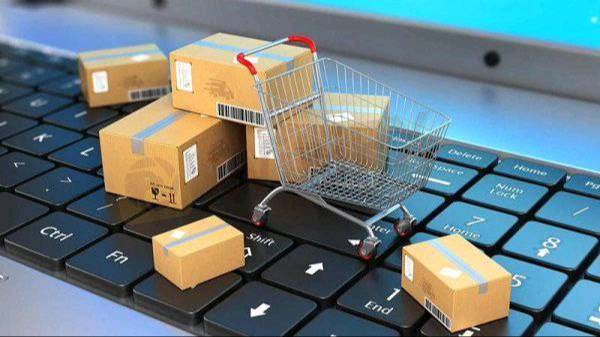
2025-01-18 00:01
업계에서How Global Platforms Address African Shipping .
#firstdealofthenewyearchewbacca
Key
Global platforms are addressing African shipping challenges by introducing innovative solutions in logistics and last-mile delivery. These efforts focus on overcoming infrastructural, regulatory, and operational obstacles unique to the continent. Here's how they are tackling these challenges:
Key Shipping Challenges in Africa
Infrastructure Gaps: Limited road networks, underdeveloped ports, and inadequate rail systems.
High Shipping Costs: Due to fragmented supply chains and inefficient processes.
Regulatory Barriers: Complex customs procedures and inconsistent regulations.
Last-Mile Delivery Issues: Poor addressing systems and difficulty accessing remote areas.
Innovations in Logistics
Technology Integration:
Real-Time Tracking: GPS and IoT-enabled devices allow real-time monitoring of shipments, improving transparency and efficiency.
Digital Freight Marketplaces: Platforms like Kobo360 and Lori Systems connect shippers with truckers to optimize cargo transportation.
Route Optimization:
AI and machine learning are used to identify the most efficient delivery routes, reducing transit times and fuel costs.
Blockchain for Customs:
Blockchain technology simplifies cross-border trade by streamlining customs documentation and reducing delays.
Localized Warehousing:
Companies like Amazon and DHL are investing in local fulfillment centers to shorten delivery times and reduce logistics costs.
Last-Mile Delivery Innovations
Use of Drones:
Companies like Zipline deliver medical supplies to remote areas using drones, bypassing road infrastructure challenges.
Crowdsourced Delivery:
Platforms like Glovo and Jumia leverage local couriers for faster and more cost-effective last-mile delivery.
Mobile Addressing Systems:
Solutions like what3words provide precise geolocation-based addresses for areas lacking formal addressing systems.
E-Commerce-Specific Solutions:
Platforms like Jumia and Konga use local distribution networks and partnerships to enhance delivery reliability.
Micro-Hubs:
Establishing micro-fulfillment centers in urban and rural areas to act as pickup or redistribution points for deliveries.
Global Collaboration and Investments
Partnerships:
Collaborations between global and local players (e.g., DHL with African logistics startups) to leverage regional expertise.
Infrastructure Projects:
Investment in ports, roads, and railways by global organizations (e.g., China's Belt and Road Initiative in Africa).
Regulatory Support:
Engaging with African governments to harmonize trade policies and improve customs processes.
Impact of Innovations
Lower Costs: Optimized routes and efficient processes reduce shipping expenses.
Faster Deliveries: Technology and localized solutions minimize transit times.
Expanded Reach: Drones and micro-hubs enable deliveries in remote and underserved regions.
Job Creation: Crowdsourcing and local partnerships provide economic opportunities.
By leveraging technology, partnerships, and innovative delivery models, global platforms are transforming logistics and last-mile delivery in Africa, paving the way for improved trade and economic growth.
좋아요 0

Faison Boniphace
交易者
인기있는 콘텐츠
시장 분석
투자주체별매매 동향
시장 분석
유로존 경제 쇠퇴 위기 직면
시장 분석
국제 유가는 어디로
시장 분석
미국증시 레버리지(Leverage)·인버스(Inverse)형의 ETF, 최근 사상 최대 신
시장 분석
투기장 된 원유 ETL...첫 투자위험 발령
시장 분석
RBNZ 양적완화 확대
포럼 카테고리

플랫폼

전시회

대리상

신병 모집

EA

업계에서

시장

인덱스
How Global Platforms Address African Shipping .
 탄자니아 | 2025-01-18 00:01
탄자니아 | 2025-01-18 00:01#firstdealofthenewyearchewbacca
Key
Global platforms are addressing African shipping challenges by introducing innovative solutions in logistics and last-mile delivery. These efforts focus on overcoming infrastructural, regulatory, and operational obstacles unique to the continent. Here's how they are tackling these challenges:
Key Shipping Challenges in Africa
Infrastructure Gaps: Limited road networks, underdeveloped ports, and inadequate rail systems.
High Shipping Costs: Due to fragmented supply chains and inefficient processes.
Regulatory Barriers: Complex customs procedures and inconsistent regulations.
Last-Mile Delivery Issues: Poor addressing systems and difficulty accessing remote areas.
Innovations in Logistics
Technology Integration:
Real-Time Tracking: GPS and IoT-enabled devices allow real-time monitoring of shipments, improving transparency and efficiency.
Digital Freight Marketplaces: Platforms like Kobo360 and Lori Systems connect shippers with truckers to optimize cargo transportation.
Route Optimization:
AI and machine learning are used to identify the most efficient delivery routes, reducing transit times and fuel costs.
Blockchain for Customs:
Blockchain technology simplifies cross-border trade by streamlining customs documentation and reducing delays.
Localized Warehousing:
Companies like Amazon and DHL are investing in local fulfillment centers to shorten delivery times and reduce logistics costs.
Last-Mile Delivery Innovations
Use of Drones:
Companies like Zipline deliver medical supplies to remote areas using drones, bypassing road infrastructure challenges.
Crowdsourced Delivery:
Platforms like Glovo and Jumia leverage local couriers for faster and more cost-effective last-mile delivery.
Mobile Addressing Systems:
Solutions like what3words provide precise geolocation-based addresses for areas lacking formal addressing systems.
E-Commerce-Specific Solutions:
Platforms like Jumia and Konga use local distribution networks and partnerships to enhance delivery reliability.
Micro-Hubs:
Establishing micro-fulfillment centers in urban and rural areas to act as pickup or redistribution points for deliveries.
Global Collaboration and Investments
Partnerships:
Collaborations between global and local players (e.g., DHL with African logistics startups) to leverage regional expertise.
Infrastructure Projects:
Investment in ports, roads, and railways by global organizations (e.g., China's Belt and Road Initiative in Africa).
Regulatory Support:
Engaging with African governments to harmonize trade policies and improve customs processes.
Impact of Innovations
Lower Costs: Optimized routes and efficient processes reduce shipping expenses.
Faster Deliveries: Technology and localized solutions minimize transit times.
Expanded Reach: Drones and micro-hubs enable deliveries in remote and underserved regions.
Job Creation: Crowdsourcing and local partnerships provide economic opportunities.
By leveraging technology, partnerships, and innovative delivery models, global platforms are transforming logistics and last-mile delivery in Africa, paving the way for improved trade and economic growth.
좋아요 0
나 도 댓 글 달 래.
제출
0코멘트

댓글이 아직 없습니다. 첫 번째를 만드십시오.

제출
댓글이 아직 없습니다. 첫 번째를 만드십시오.